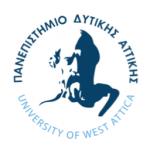2024 |
Koulouris, Alexandros; Kouis, Dimitrios; Comas Forgas, R. AI‐navigating’or ‘AI‐sinking’? An analysis of verbs in research articles titles suspicious of containing AI‐generated/assisted content Journal Article In: Learned Publishing, vol. 38, iss. 1, 2024. Abstract | Links | BibTeX | Tags: AI generated content, analysis @article{nokey,Our study investigates the impact of Artificial Intelligence (AI), specifically generative AI technologies (GAI), on the linguistics of academic article titles. Triggered by suspicious of increased usage of specific verbs in article titles, this research hypothesizes that GAI tools may be influencing the language of scientific communication. To explore this hypothesis, we conducted a comprehensive analysis on the frequency and distribution of 15 selected verbs in research article titles, using data extracted from the SCOPUS database spanning 2015 to 2024. The methodology integrates qualitative observations with a bibliometric approach, examining the presence and trends of these verbs across multiple scientific disciplines. The findings reveal a marked increase in these verbs, pointing towards AI's involvement in title generation. We also explore document characteristics, such as disciplinary backgrounds and publication contexts, to gauge AI's impact on academic writing. Furthermore, the research attempts to quantify the extent of AI-assisted title generation. Despite several limitations, this investigation paves the way for future studies to broaden the linguistic and database scope. It underscores the need for establishing AI usage standards in academic publishing, contributing valuable insights into the ongoing dialogue about AI's integration into academic writing. |
2021 |
Michailidis, T. Οι Προϊστορικές και Κλασικές Αρχαιότητες ως σημειωτικά τοπία στην πεζογραφία της γενιάς του τριάντα: μια παραδειγματική ανάλυση Journal Article In: Φιλόλογος, no. 182, pp. 223-240, 2021. Abstract | Links | BibTeX | Tags: analysis, prose @article{nokey,Το συγκεκριμένο άρθρο μελετά, με εργαλεία της Σημειωτικής, το φάσμα των δυνατών σημασιών που επιτρέπει η αναγνωστική πρόσληψη της υλικής αρχαιότητας στην πεζογραφία της γενιάς του τριάντα. Η εργασία αποσκοπεί, μέσω παραδειγματικών αναλύσεων, να φανερώσει με ποιους τρόπους η λογοτεχνική απόδοση των Αρχαιοτήτων αποκτά ιδεολογικές σημάνσεις και πώς αυτές συμβάλλουν στην ανασύνθεση της εθνικής ταυτότητας. |
2019 |
Peponakis, M.; Mastora, A.; Kapidakis, S.; Doerr, M. Expressiveness and machine processability of Knowledge Organization Systems (KOS): an analysis of concepts and relations Journal Article In: International Journal on Digital Libraries, vol. 20, pp. 433–452, 2019. Abstract | Links | BibTeX | Tags: analysis, Knowledge organization systems, machine processability @article{Peponakis2019,This study considers the expressiveness (that is, the expressive power or expressivity) of different types of Knowledge Organization Systems (KOS) and discusses its potential to be machine-processable in the context of the semantic web. For this purpose, the theoretical foundations of KOS are reviewed based on conceptualizations introduced by the Functional Requirements for Subject Authority Data (FRSAD) and the Simple Knowledge Organization System (SKOS); natural language processing techniques are also implemented. Applying a comparative analysis, the dataset comprises a thesaurus (Eurovoc), a subject headings system (LCSH) and a classification scheme (DDC). These are compared with an ontology (CIDOC-CRM) by focusing on how they define and handle concepts and relations. It was observed that LCSH and DDC focus on the formalism of character strings (nomens) rather than on the modelling of semantics; their definition of what constitutes a concept is quite fuzzy, and they comprise a large number of complex concepts. By contrast, thesauri have a coherent definition of what constitutes a concept, and apply a systematic approach to the modelling of relations. Ontologies explicitly define diverse types of relations, and are by their nature machine-processable. The paper concludes that the potential of both the expressiveness and machine processability of each KOS is extensively regulated by its structural rules. It is harder to represent subject headings and classification schemes as semantic networks with nodes and arcs, while thesauri are more suitable for such a representation. In addition, a paradigm shift is revealed which focuses on the modelling of relations between concepts, rather than the concepts themselves. |
Indicative Publications
2024 |
AI‐navigating’or ‘AI‐sinking’? An analysis of verbs in research articles titles suspicious of containing AI‐generated/assisted content Journal Article In: Learned Publishing, vol. 38, iss. 1, 2024. |
2021 |
Οι Προϊστορικές και Κλασικές Αρχαιότητες ως σημειωτικά τοπία στην πεζογραφία της γενιάς του τριάντα: μια παραδειγματική ανάλυση Journal Article In: Φιλόλογος, no. 182, pp. 223-240, 2021. |
2019 |
Expressiveness and machine processability of Knowledge Organization Systems (KOS): an analysis of concepts and relations Journal Article In: International Journal on Digital Libraries, vol. 20, pp. 433–452, 2019. |

